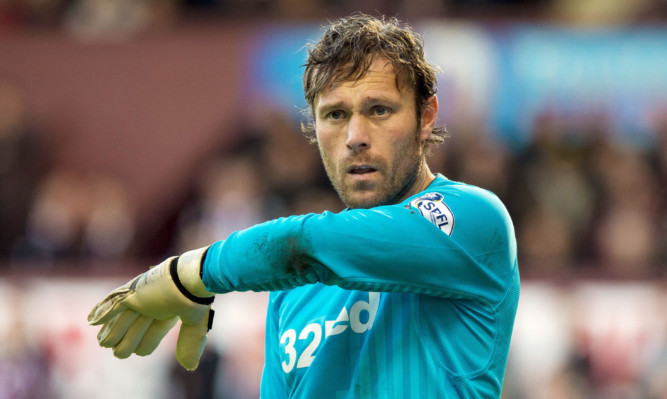
It was shocking to hear the news that Steve Simonsen has been charged with breaching SFA gambling rules.
The notice of complaint from the Association alleges he placed bets on 55 matches over the past 12 months.
There is no suggestion, they have pointed out, he was involved in any of the matches he is accused of putting money on.
The hearing is to be held on February 12 and Rangers have insisted they will continue playing the 35-year-old Englishman until then. He is, as they state, innocent until proven guilty.
That is fair enough. But if that is indeed the finding, fans will be entitled to ask some serious questions. Because given the amount of publicity recent cases have had, it would be naive in the extreme for any Scottish player to be indulging in such behaviour.
It would be frankly staggering for the culprit to come from Rangers.
It was in September, 2013, remember, that Ian Black was handed a 10-game ban, seven of which were suspended, plus a £7,500 fine for placing 160 football bets over seven years.
To say this was a high-profile case would be an understatement.
Given Black is a current team-mate of Simonsen, he would have to know both all about the offence in question, and the potential penalties.
There is, of course, a big difference with Black. Three of the games involved his clubs at the time. And this leads us on to a separate issue.
Yes, it is essential professional footballers should follow the rules and regulations. They are there for a reason.
At the same time, why shouldn’t someone who is playing his football with Rangers in the Scottish Championship not be able to bet a couple of pounds on a match between, say my old club Brighton and Arsenal today?
Provided he can’t influence the outcome, then where is the harm?
I know this issue grates on a lot of people involved in the game.
Betting is part of Scottish culture and football players themselves are almost by definition likely to have an interest in the big matches.
What is especially annoying is that people in the game in England are free to bet provided it is outwith their own country.
For me, that makes perfect sense.
In fact, I would go as far as to say the Scottish rules should be reviewed with a view to being changed.
I do appreciate gambling can be a big problem for players. There have been some real cases of woe.
But the Players Union works hard to educate footballers on the potential pitfalls and warnings are posted in every bookmaker.
They are adults and, as such, should be entitled to make their own choices.

Enjoy the convenience of having The Sunday Post delivered as a digital ePaper straight to your smartphone, tablet or computer.
Subscribe for only £5.49 a month and enjoy all the benefits of the printed paper as a digital replica.
Subscribe